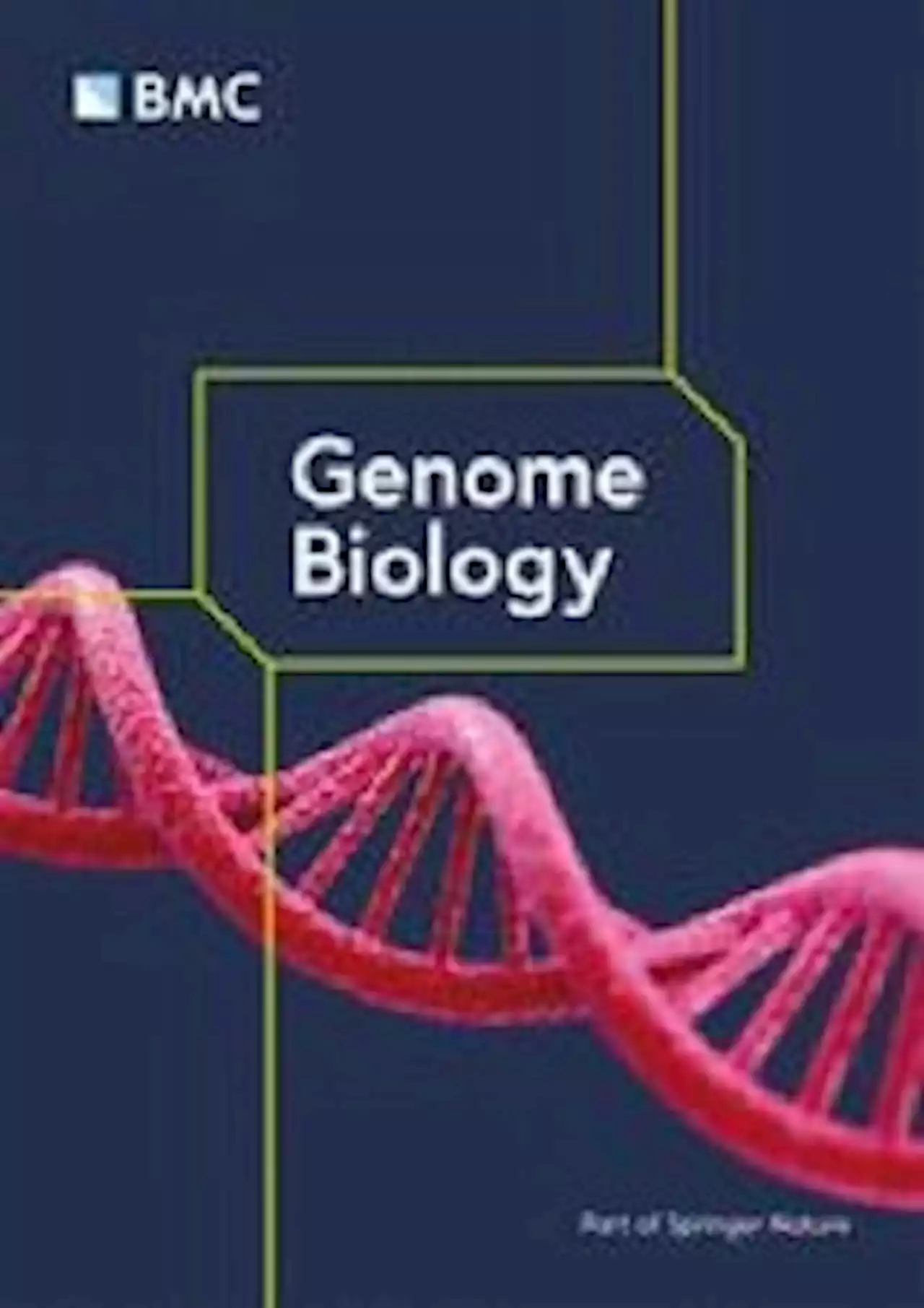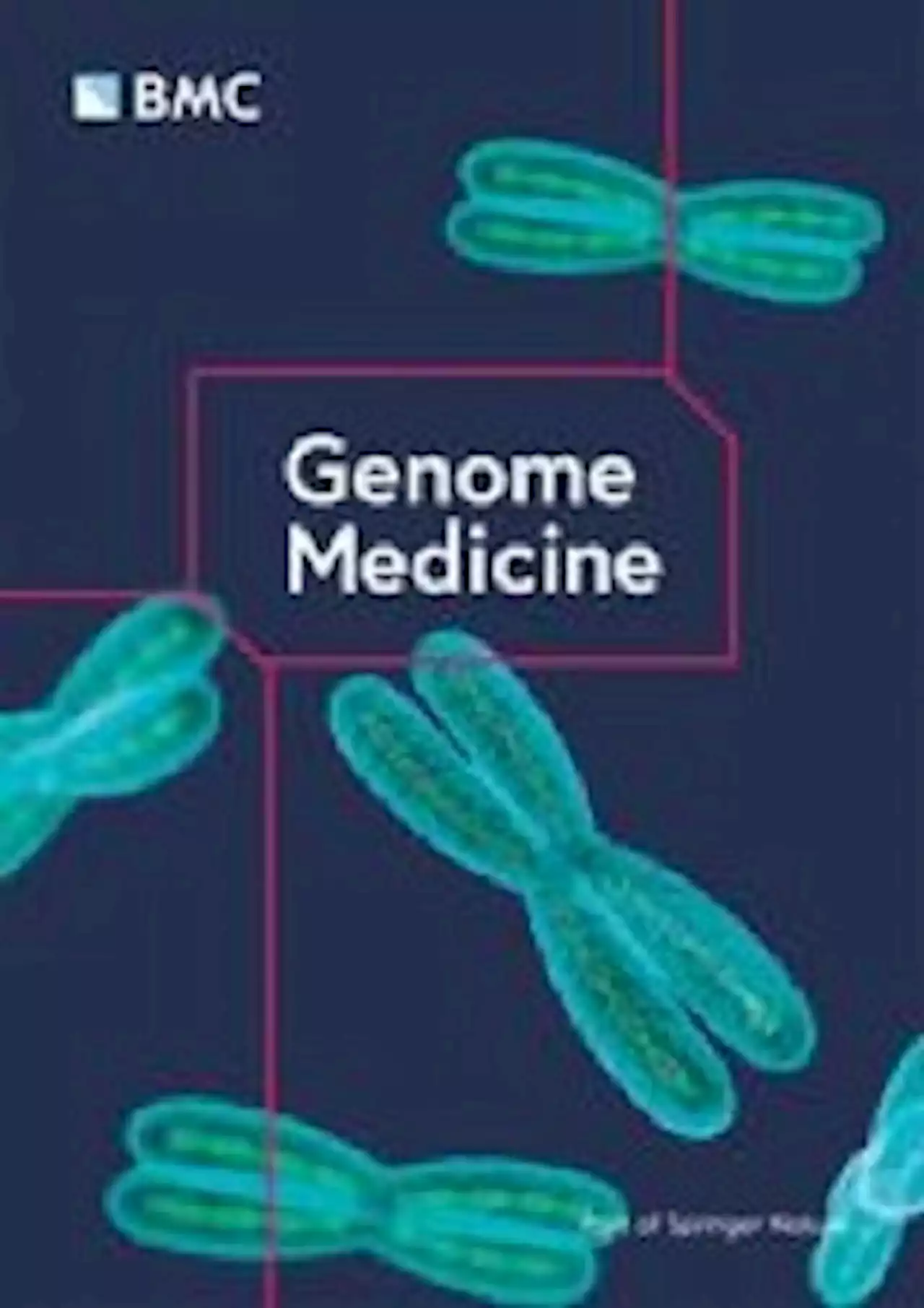A study published in GenomeMedicine has identified 35 new likely diagnoses in probands with an unsolved rare disease by examining splicing variants in whole-genome sequencing data from the 100,000 Genomes Project.
]. For this reason, the systematic classification of near-splice variants remains challenging, and clinical interpretation of these variants is still dependent on expert phenotype matching and functional validation of candidate variants.
Surprisingly, several strong diagnostic candidates were apparently overlooked in the standard variant interpretation pipeline, including at least nine CSS variants and four D + 5 variants, all in known rare disease genes. Of ten de novo D + 5 variants, none were previously labelled as pathogenic, despite their high prior probability of being diagnostic in this context [Clearly, many new diagnoses remain to be found.
Canada Latest News, Canada Headlines
Similar News:You can also read news stories similar to this one that we have collected from other news sources.
 HBO just canceled another comedy with 100% on Rotten TomatoesThe network axes another critical hit.
HBO just canceled another comedy with 100% on Rotten TomatoesThe network axes another critical hit.
Read more »
 More than 100 officers join Lancashire Police thanks to new UCLan degreeDEHP first cohort graduate Jade Hutchinson will soon be policing the streets of Lancashire The first cohort of the Degree Holder Entry Programme (DHEP) for policing has graduated from the University of Central Lancashire ready to serve in Lancashire Police. The 108 new officers are amongst the first to graduate from this innovative new programme, which is specifically for people who already hold a bachelor’s degree and want to train as a police officer. The
More than 100 officers join Lancashire Police thanks to new UCLan degreeDEHP first cohort graduate Jade Hutchinson will soon be policing the streets of Lancashire The first cohort of the Degree Holder Entry Programme (DHEP) for policing has graduated from the University of Central Lancashire ready to serve in Lancashire Police. The 108 new officers are amongst the first to graduate from this innovative new programme, which is specifically for people who already hold a bachelor’s degree and want to train as a police officer. The
Read more »
 New exhibition to showcase Watford's 100 years at Vicarage RoadA brick, a part of a floodlight pylon or some large metal letters may not immediately come to mind as the most appealing objects to put in a public…
New exhibition to showcase Watford's 100 years at Vicarage RoadA brick, a part of a floodlight pylon or some large metal letters may not immediately come to mind as the most appealing objects to put in a public…
Read more »
 Superga’s ‘Artifact’ collection celebrates over 100 years of craftDesigned by Teppei Sugaya, the ‘Artifact’ collection by Superga explores the Italian shoe brand’s historic archive, with each launch arriving with a film celebrating artisans and hand-craft...
Superga’s ‘Artifact’ collection celebrates over 100 years of craftDesigned by Teppei Sugaya, the ‘Artifact’ collection by Superga explores the Italian shoe brand’s historic archive, with each launch arriving with a film celebrating artisans and hand-craft...
Read more »
 Large-scale manipulation of promoter DNA methylation reveals context-specific transcriptional responses and stability - Genome BiologyBackground Cytosine DNA methylation is widely described as a transcriptional repressive mark with the capacity to silence promoters. Epigenome engineering techniques enable direct testing of the effect of induced DNA methylation on endogenous promoters; however, the downstream effects have not yet been comprehensively assessed. Results Here, we simultaneously induce methylation at thousands of promoters in human cells using an engineered zinc finger-DNMT3A fusion protein, enabling us to test the effect of forced DNA methylation upon transcription, chromatin accessibility, histone modifications, and DNA methylation persistence after the removal of the fusion protein. We find that transcriptional responses to DNA methylation are highly context-specific, including lack of repression, as well as cases of increased gene expression, which appears to be driven by the eviction of methyl-sensitive transcriptional repressors. Furthermore, we find that some regulatory networks can override DNA methylation and that promoter methylation can cause alternative promoter usage. DNA methylation deposited at promoter and distal regulatory regions is rapidly erased after removal of the zinc finger-DNMT3A fusion protein, in a process combining passive and TET-mediated demethylation. Finally, we demonstrate that induced DNA methylation can exist simultaneously on promoter nucleosomes that possess the active histone modification H3K4me3, or DNA bound by the initiated form of RNA polymerase II. Conclusions These findings have important implications for epigenome engineering and demonstrate that the response of promoters to DNA methylation is more complex than previously appreciated.
Large-scale manipulation of promoter DNA methylation reveals context-specific transcriptional responses and stability - Genome BiologyBackground Cytosine DNA methylation is widely described as a transcriptional repressive mark with the capacity to silence promoters. Epigenome engineering techniques enable direct testing of the effect of induced DNA methylation on endogenous promoters; however, the downstream effects have not yet been comprehensively assessed. Results Here, we simultaneously induce methylation at thousands of promoters in human cells using an engineered zinc finger-DNMT3A fusion protein, enabling us to test the effect of forced DNA methylation upon transcription, chromatin accessibility, histone modifications, and DNA methylation persistence after the removal of the fusion protein. We find that transcriptional responses to DNA methylation are highly context-specific, including lack of repression, as well as cases of increased gene expression, which appears to be driven by the eviction of methyl-sensitive transcriptional repressors. Furthermore, we find that some regulatory networks can override DNA methylation and that promoter methylation can cause alternative promoter usage. DNA methylation deposited at promoter and distal regulatory regions is rapidly erased after removal of the zinc finger-DNMT3A fusion protein, in a process combining passive and TET-mediated demethylation. Finally, we demonstrate that induced DNA methylation can exist simultaneously on promoter nucleosomes that possess the active histone modification H3K4me3, or DNA bound by the initiated form of RNA polymerase II. Conclusions These findings have important implications for epigenome engineering and demonstrate that the response of promoters to DNA methylation is more complex than previously appreciated.
Read more »
 Major monkeypox update as cases rise & scientists identify new painful symptomsMONKEYPOX cases have risen again in the UK as scientists identify new, painful symptoms. Up to July 28 there have been 2,469 confirmed cases of the bug, new data from the UK Health Security Agency …
Major monkeypox update as cases rise & scientists identify new painful symptomsMONKEYPOX cases have risen again in the UK as scientists identify new, painful symptoms. Up to July 28 there have been 2,469 confirmed cases of the bug, new data from the UK Health Security Agency …
Read more »
